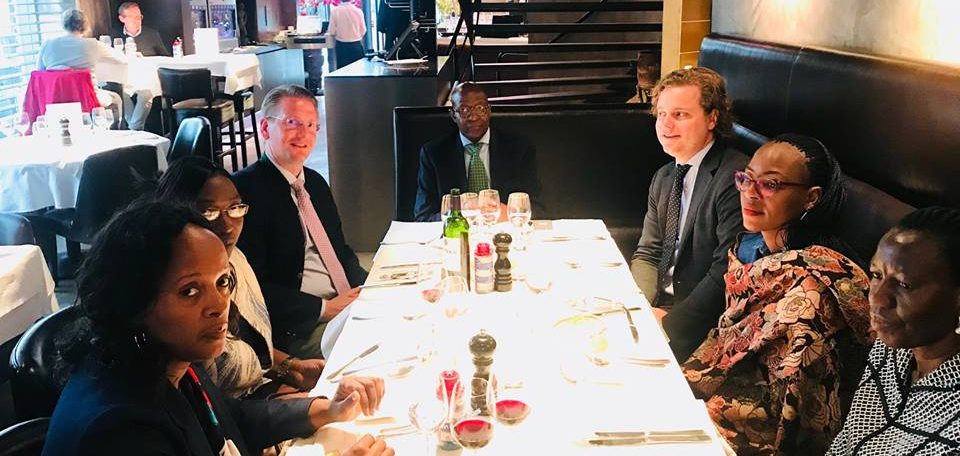
14 Jun 2018 FACE MEETS NAMIBIAN ACP-DELEGATION ON WILDLIFE TRAFFICKING
Ahead of a week full of meetings for the African, Caribbean and Pacific Group of States (ACP) and the joint EU-ACP parliamentary assembly, FACE met with the delegation from Namibia to discuss relevant topics on the agenda. Wildlife trafficking, the role of CITES, the added value of hunting to conservation and its role in combating poaching and other wildlife crime were discussed.
The ACP group and the joint parliamentary assembly with the European Parliament were created to foster economic integration and cooperation on a range of topics between different countries. There are 48 countries from Sub-Saharan Africa, 16 from the Caribbean and 15 from the Pacific region. Attending the meeting were: Honourable Heather Mwazi Sibungo, MP and Leader of the delegation; and Honourable Faustina Caley, MP, accompanied the Namibian Ambassador to the EU, Prof. Kaire Mbuende; and Mrs Latungika Loide Shikwambi and Ms. Annalisa Meroro, staff of the Embassy and Parliament.
Wildlife trafficking, as other wildlife crime, has major consequences for nature conservation and economic development in countries around the world, also for Namibia. The Convention on Illegal Trade in Endangered Species (CITES) is an international convention that regulates trade in endangered species, to make sure any trade is legal (according to national and international legislation) and sustainable, i.e. that trade does not threaten with the survival of the species.
A consequence of wildlife trafficking for Namibia is the negative impact that it is having on well managed and legal economic activities, such as tourism and sustainable use of wildlife through hunting. Namibia, and other countries, have used benefits coming from these activities to incentivise local people to co-exist with wildlife and eventually even adopt wildlife as a form on land-use on their land. There is a clear need for the international community to work together on fighting wildlife crimes and to make sure that there are policies in place that reward people for co-existing with wildlife.

